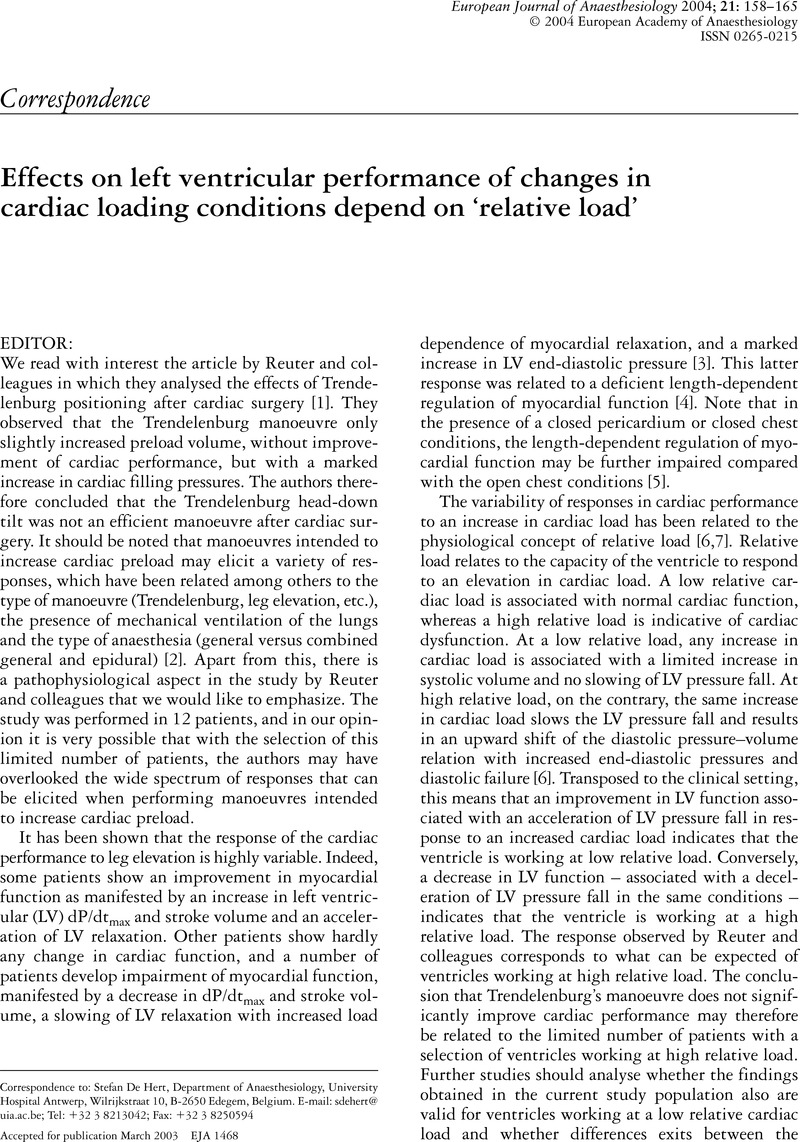No CrossRef data available.
Article contents
Anaesthesiologists do not have attention- and memory-related cognitive dysfunctions in comparison with matched physicians
Published online by Cambridge University Press: 23 December 2004
Abstract
An abstract is not available for this content so a preview has been provided. Please use the Get access link above for information on how to access this content.

- Type
- Correspondence
- Information
- Copyright
- 2004 European Society of Anaesthesiology
References
Weinger MB, Englund CE. Ergonomic and human factors affecting anesthetic vigilance and monitoring performance in the operating room environment. Anesthesiology 1990; 73: 995–1021.Google Scholar
Broadbent DE, Cooper PF, FitzGerald P, Parkes KR. The Cognitive Failures Questionnaire (CFQ) and its correlates. Br J Clin Psychol 1982; 21: 1–16.Google Scholar
Rasmussen K, Jeppesen HJ, Sabroe S. Psychometric tests for assessment of brain function after solvent exposure. Am J Ind Med 1993; 24: 553–565.Google Scholar
Araki S, Murata K. Determination of evoked potentials in occupational and environmental medicine: a review. Environ Res 1993; 63: 133–147.Google Scholar
Stollery BT, Broadbent DE, Lee WR, Keen RI, Healy TEJ, Beatty P. Mood and cognitive functions in anaesthesiologists working in actively scavenged operating theatres. Br J Anaesth 1988; 61: 446–455.Google Scholar
Lucchini R, Belotti L, Casitto MG, et al. Neurobehavioral functions in operating theatre personnel: a multicenter study. Med Lav 1997; 88: 396–405.Google Scholar
Mahoney AM, Dalby JT, King MC. Cognitive failures and stress. Psychol Rep 1998; 82: 1432–1434.Google Scholar


